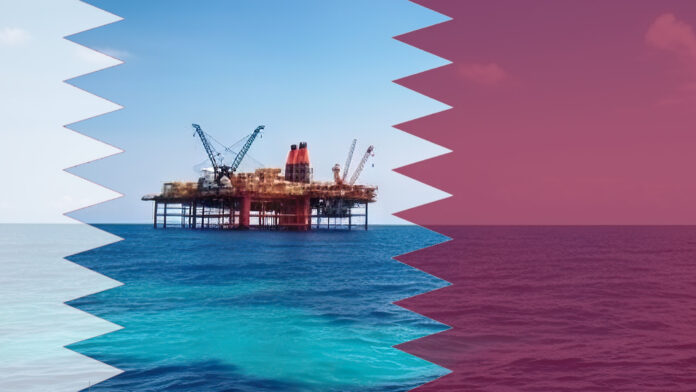Qatari mobile operator Ooredoo has deployed a private LTE network from Nokia for the oil and gas industry, covering offshore and onshore operations. In a press statement, Finnish vendor Nokia called it the “first” private cellular network in the Middle East and Africa (MEA) region “for the energy sector”, and said it will cover an “initial capacity” of 20,000 subscribers on the offshore grid, and replace “older” Wi-Fi and WiMAX technologies.
Curiously, Ooredoo said 18 months ago it was working with Nokia, plus Swedish rival Ericsson, to deploy a “dedicated LTE network for the oil and gas industry”, describing it at the time as “a first for Qatar”, also. The new Nokia announcement actually makes no reference to LTE, nor to 5G, just calling it a “private wireless network”. So something doesn’t add up; logic and assumption says it is a new LTE project, however.
There is no reference to the oil and gas customer, either.
Nokia said in a statement: “The first-of-its-kind project will provide dedicated voice and customer data services in the most remote and challenging locations. The deployed solution… aims to connect offshore and onshore facilities, ensuring seamless voice and data services. By offering dedicated connectivity, this network will empower customers to digitalise and automate operations, marking a significant step towards enhanced efficiency and productivity.”
It said it will supply “cutting-edge products tailored to deliver resilient mission-critical connectivity, along with deployment and care services, with its resident engineers providing expert support to ensure the network operates at optimal level”. The new network deployment covers a “native offshore system”, which integrates with the “existing commercial core [network]… to improve operational efficiency and reduce interruptions from onshore connectivity”.
Nokia continued: “The integration equally enables the efficient handling of interoperability and interservice handovers, making communication between offshore and onshore locations smoother and more reliable than ever before, while managing latency issues through localised data services to improve process efficiency. It will also improve customer experience, by replacing older Wi-Fi and WiMAX technologies.”
Günther Ottendorfer, chief technology and information officer at Ooredoo Qatar, said: “This significant milestone underlines our commitment to transforming communication solutions for challenging environments. This landmark project provides dedicated voice and data services and paves the way for the oil and gas sector and others to replicate such solutions, marking a new era in connectivity for the industry.”
Samar Mittal, vice president of cloud and network services in the MEA region at Nokia, said: “This Nokia enterprise solution, specifically designed for offshore locations, coupled with our delivery capabilities and expertise, ensures that the energy sector can now rely on a robust and resilient connectivity solution. Through this partnership with Ooredoo Qatar, we are setting new benchmarks for innovation, efficiency and reliability.”
The Ooredoo press announcement from 18 months ago sounds remarkably similar, suggesting the new Nokia deployment represents either the final phase of the initial Nokia/Ericsson experiment, with the Swedish vendor dropping from the project in between times, or that Ericsson is readying a parallel release and there are twin private network projects in play, which will invariably interconnect, but may serve different purposes.
The announcement from March 2022 states: “In a first for Qatar, the new LTE network will be dedicated to maintaining connectivity and supporting customers’ data and voice call needs in remote, challenging locations such as offshore facilities. Having identified a need for the provision of data and voice services [for] its oil and gas industry customers – to replace older Wimax/WiFi technology throughout their offshore facilities – Ooredoo collaborated with… Ericsson and Nokia to develop a dedicated LTE network that could support their offshore operations.”

